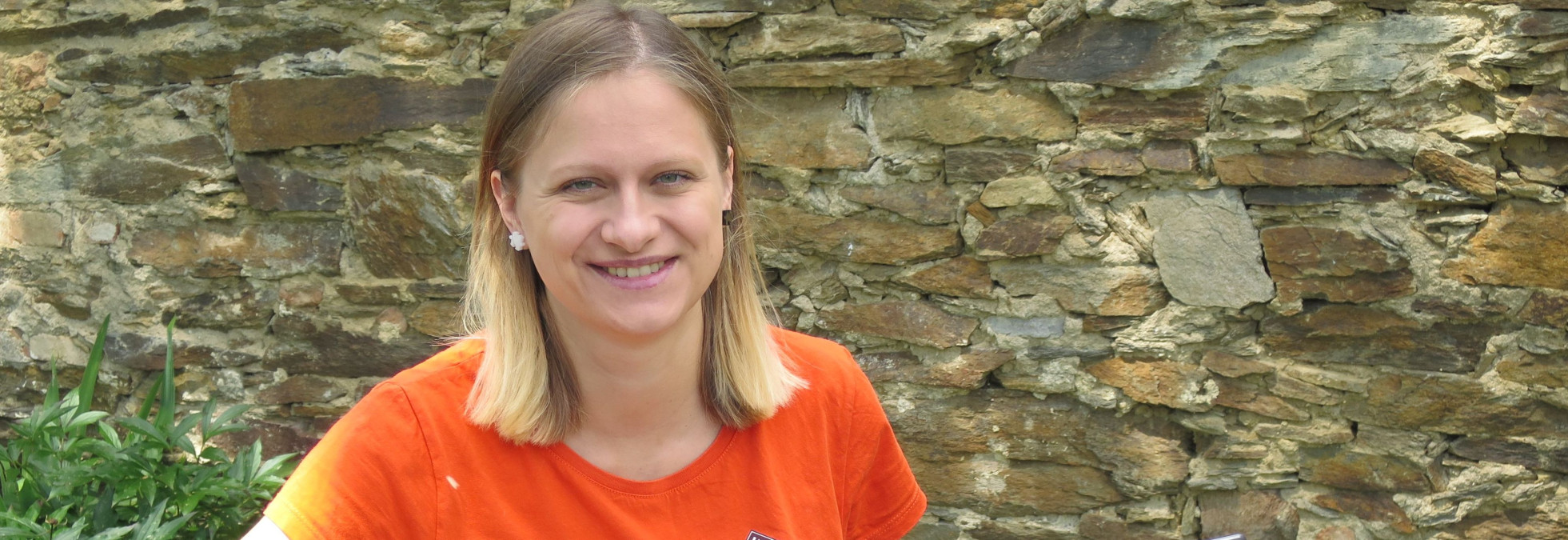Everybody has the right to live a normal life
Published: Oct 8, 2018 Reading time: 5 minutes Share: Share an articleFortunately, the times when people with disabilities were automatically institutionalised or discriminated against by society are a thing of the past. However, countries like Serbia, Kosovo and Bosnia and Herzegovina have a long way to go to catch up with current development. “The Czech Republic is now in a great position to pass on its experiences with social inclusion,” says Alžběta Stropnická. For many years, Alžběta managed various PIN country programmes in the Balkans.

How would you describe a typical social care institution for people with intellectual, psychosocial and physical disabilities in the Balkans?
It’s a place that usually holds hundreds of people, all of whom live together. No one is allowed to make their own decisions. The daily schedule is designed to meet the needs of clients with the severest intellectual and physical disabilities. This means that nobody, not even someone with mild impairment, is allowed to use a fork or a knife while eating. They effectively eat only ground-up food all their lives. Clients have a regular shower every Tuesday, but they’re not allowed to have a shower on any other day. They don’t have access to any personal belongings and can’t choose what they want to wear. If they want to leave the institution for an afternoon, for example, they need permission.
To improve the living conditions of people with disabilities, we’re actively engaged in trying to transform these social care institutions, establish more community-based services like day-care centres and independent living, and provide job opportunities. When people leave these institutions, their lives change significantly and they become much happier.
Transforming a system like that must be really difficult, considering both the legislation in place and the funds available …
That’s true, but we’re committed to ensuring that everyone has the opportunity to live a normal life. The cost of independent living service doesn’t exceed that of institutional care and each individual is given a tailored service.
How have local authorities responded to this initiative?
To be honest, transforming social services isn’t a topic that’s going to help you win an election. That said, the local experts have welcomed our input, and we try to support them when they negotiate on community-based services. Institutions for people with disabilities do still exist in the Czech Republic and there are many areas that need to be improved. But we’ve come quite a long way and can become an inspiration for others. We’re highly thought of in the Balkans, so the Czech Republic would be a far more understandable example to follow than Australia, for instance.
Nowadays, sheltered workshops and cafés staffed by people with disabilities are becoming more and more popular in the Czech Republic. Are there any places like that to be found in Serbia or Bosnia and Herzegovina?
So far, there have been some efforts to start up social businesses in these countries, but the problem is that there are no laws in place to enable that kind of initiative. What’s more, most people with intellectual disabilities have been fully deprived of their legal capacity, which means they’re not authorised to conduct any legal acts. What this effectively means is that they can’t work legally. They can’t sign a contract; they’re not entitled to any wages, holidays or pensions. Therefore, our goal is to make sure that these individuals regain legal capacity, at least partially, so that they can integrate into everyday life.
It seems like they’re trapped in a vicious circle – having no work makes that kind of integration virtually impossible. Is there any way out?
One of the projects we’ve helped to introduce would be comparable to vocational training. For example, a woman who runs a hairdressing salon or a cake shop takes on a person with disability. She then obtains a financial reward from People in Need for spending her time with that person and teaching him or her something new. Disability remains a taboo topic in the Balkans and people still hold strong prejudices against people with disabilities. The financial motivation helps overcome the first barrier, resulting in the trainee becoming actively involved. Once the other employees get to know the person, they discover that he or she is a person just like anybody else and that there’s no reason to be afraid. After finishing the vocational retraining course, a lot of the people we help stay on to assist as informal volunteers. Unfortunately, they generally receive no wage or salary. Still, they do feel they that they’re being useful: they get to work with other colleagues and engage with customers, and that’s all very beneficial for them.
So why does such prejudice against people with disabilities still exist in this society?
People always fear what they don’t know or don’t understand. It used to be the same here. Just ask anyone who was placed in the Jedlicka Institution some 30 years ago as a child. Although these children were “only” physically disabled and not intellectually, they were put behind a fence and prevented from playing with able-bodied children. And this is exactly what stigmatises these kids. If able-bodied people meet people with disabilities in playgroups, kindergarten and school at an early age, when they meet them as colleagues at work in later life, it’s no longer strange. That’s why People in Need began to support the inclusive education of both the childern with intellectual disabilities and the children of ethnic minorities in Kosovo.
What do you consider real success? Are the results of your work palpable yet?
Yes, they are. We see the greatest success in each person that moves into independent living service/house/unit and gets to live a happy life. It’s great to see people who’ve spent 30 years in an institution be given a real home, a place where they can sit down at their own table and make a coffee or bake a cake.


